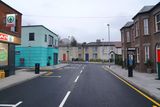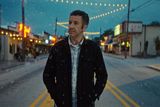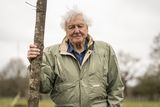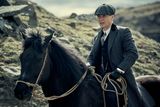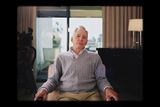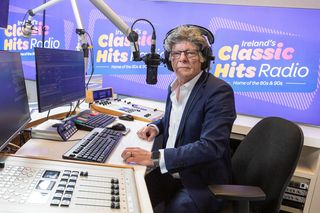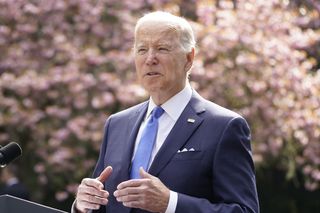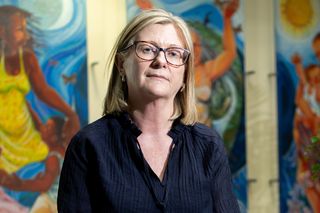After life's sweet and sour, a new slice of success
Paul Rankin was the first chef in Northern Ireland to get a Michelin star. At his height, he had 15 food businesses. Then the downturn hit, the restaurants closed and he separated from his wife Jeanne. Now he's back with a new TV show
Paul Rankin looks good in a kilt. Now aged 55, he is still long and lean - testimony, I guess, to his youthful enthusiasm for sports, particularly football, rugby and athletics (he once held the South Antrim 100m hurdles record). The infectious, even boyish, enthusiasm that first made him a star helps too.
The first chef to win a Michelin Star in Northern Ireland, with Roscoff, in 1999, Rankin was also, for years, a regular on TV (stuff like X Factor: Battle of the Stars, as well as Ready, Steady Cook and The Great British Menu) and author of five books. At one stage, his empire included 15 different food businesses, until a combination of the economic downturn and over-extension saw that reduced to just one, Cayenne. Finally, in 2013, that too closed.
Now, free from the daily grind of running a business (although when asked whether he will open another, he says coyly "I've a few projects on at the moment"), he has time to devote to TV work, and has paired up with Scottish chef Nick Nairn, for a series of shows centred around the food heritage of Scotland and Northern Ireland. The latest of these, Paul and Nick's Big American Food Trip, explores the influence of these cultures on America. "You see the influences in food, in agriculture, society, in the churches," he tells me. "The Scottish and Irish had a very big say in how America has turned out. It's very endearing, how happy they were to chat to us. It's lovely. We're very proud of this one."
So, is this a good time in his life? "Yeah." And then he pauses. "I'm taking things a bit easier. I mean, I've been cooking for 30 years and I'm really enjoying taking a break from the kitchen. I still have kitchen dreams and nightmares every other night. That just shows how embedded it is in me." He's talking about the classic kind of anxiety dream that most of us still focus around school exams, except that for Rankin, the dreams take the shape of cooking for the US President, but having to find a chicken in Donegal and not being able to get back in time. "Nonsense stuff," as he says, but still, an indicator of the mental toll of all those years. "In a high-end kitchen," he agrees, "that intensity is there almost every single day."
Does he ever look back and wonder how he managed? "I do," he says emphatically. "I especially wonder how Jeanne and I did it when we had a Michelin star, the kids were tiny, we were writing a book a year and doing one or two TV series a year. I can't even really remember it. If I was to try and do that now, I couldn't. But there was the adrenalin, and the passion, and it was fresh. I would never be as passionate about the media as I would have been about the food and the restaurant business," he admits, I think a little sadly, "but it has been kind to me."
Jeanne is, of course Paul's wife and business partner of over 25 years, the glamorous blonde who did so much to publicise and enhance the brand. The couple split, amicably, in 2011, some years after Jeanne revealed a debilitating addiction to morphine-based painkillers following a riding accident that left her with terrible back pain, but until the split, she was a vital part of the Rankin success story. They first met in Greece, then went to Canada, where Jeanne is from; "she taught me how to fake it as a waiter, and I've been faking it ever since," says Paul with a laugh. "I fell head over heels in love with the restaurant business, and when I fall in love, I become a bit obsessive. When I trained as a chef, people said, 'you're too old, you can't do it!' And by the time I got my Michelin star, people said 'you're very young to have a Michelin star!'" So, he concludes, "don't listen to a bloody word all those experts say. If you feel it your heart and your head, have a bloody good go!"
And yes, he misses her influence enormously. "Nick and I have been talking about a book for 18 months now, but we're like children," he laughs. "We both think recipe writing is like homework. Jeanne was amazing at that. I was more the creative force, but she was the one who got things done. I miss her as a sounding board - in life and in business and this cookery stuff. With her, it was smooth. Jeanne is very, very good at that academic type of work. For me, it's just a big snore. I'd rather go out and play a game of football."
Of the end of the marriage he says simply, "these things happen in life. I feel more than blessed to have spent so many wonderful years with Jeanne. She is still the most influential person that I ever had in my life. It's a shame we didn't make it, because I thought we were going to be happy ever after. Life deals you funny hands sometimes, and we didn't quite make it, but we're all right."
Unravelling the Northern Irish peace process is a tricky business; how much is down to personalities and politics, how much is simply economics and social shifts? But there is no doubt that Paul and Jeanne, in their way, contributed. He knows it - "At the time we got our star, there was a total of 25 Michelin stars in the UK. Every single broadsheet from the Republic and the UK came over to write about us. At the time, I thought they were writing about me - typical egotistical chef - but actually, what they were writing about, was, 'Northern Ireland has a Michelin-starred restaurant. Does that mean we're moving into a different time?' And it was. It was a signpost for a different time." That said, he doesn't bother dwelling on past successes; "I'm not very good at taking compliments," he says, "so I don't necessarily feel immense pride."
What does make him proud? "I think I had a bit of a revelation in the last three years, seeing my children grown up. My youngest is 17 and my eldest is 27, and they're so beautiful and together and both Jeannie and I are so proud of them. To really feel and think, 'gosh, of all the things, everything I've ever done in my life, those three are the best!' I can't believe I managed to raise three such gorgeous, balanced children. Because I'm a bit flaky, and so is Jeannie. We're hippy-dippy, artistic, idealistic people."
This is part and parcel of a generally changed attitude to life. "There's a wonderful saying that I've come across," he says. "'Just to be alive is enough.' Every breath we take on planet earth is a gift and we should enjoy it. And so I don't really have regrets. Some things I could have done better, some things I could have done worse, but you definitely learn from tough knocks or things you haven't done right." What kinds of things did he learn? "Empathy and love, you learn those. There were tough times. But I wouldn't be as kind or aware, wise, stupid . . . I wouldn't be who I am if I hadn't gone through those things. And looking back on it, the lessons I learned in those times were very valuable. I don't know if I'd change a thing, because I feel much more awake now."
And, he points out judiciously, "we all go through tough stuff," adding, with an endearing mix of boastfulness and chagrin, "I had a home run in life for 40-odd years. I hit home run after home run. I was due a bit of pain. And it was good for me!" Good how, I wonder. "I'll tell you one of the things it did teach me. It reminded me that I'm not money-motivated. I kind of look back on it and think, 'why the hell was I doing that in the first place?' You kind of got talked into it." He's talking about the failures of the business, but then extrapolates outwards to take in philosophy and life lessons too. "We compensate in life, quite a lot, whether with money, fame, prestige, holier-than-thou-ness. We compensate for not being connected to life, to the people who matter. And I learned - I've always been pretty down-to-earth, never phased by celebrity or fame - but I learned what a nonsense it really is and that the important things in life are the same things as were important a hundred or a thousand years ago. The simple things. I think that's quite beautiful."
Paul and Nick's Big American Food Trip, Friday, UTV at 8pm.
Join the Irish Independent WhatsApp channel
Stay up to date with all the latest news
